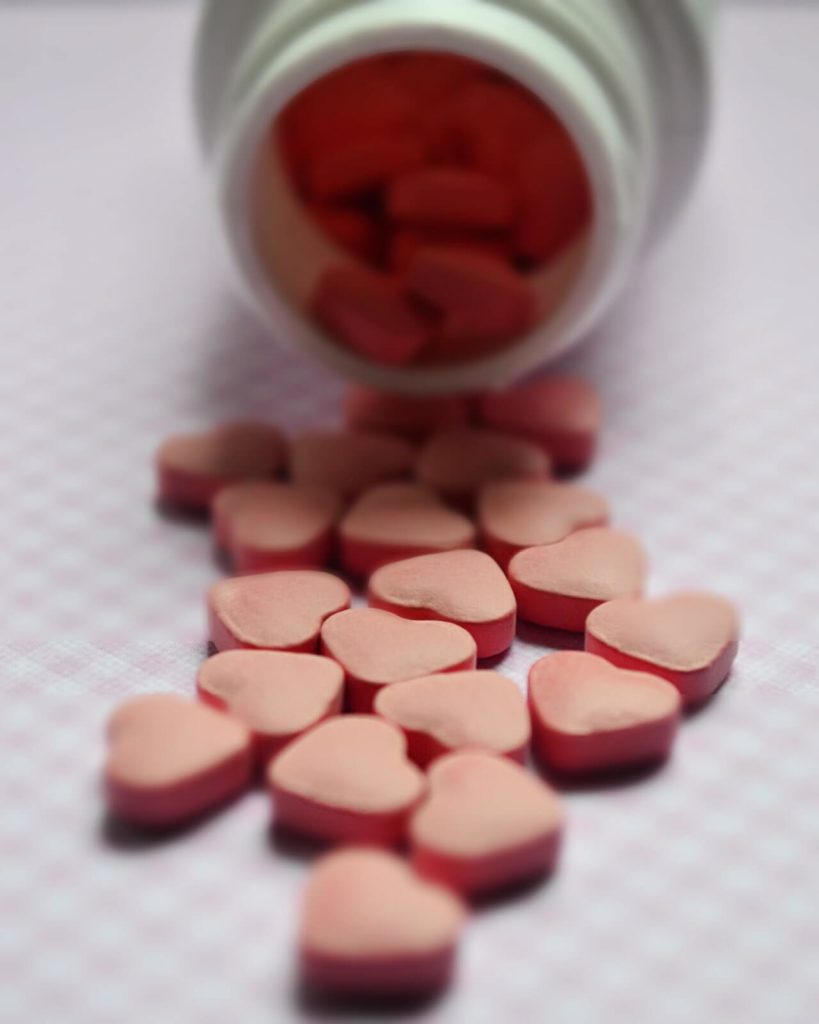Sometimes you need medication to stay mentally and physically healthy. Each medication has its side effects. However, there are some that also have an influence on your sex life; they can cause sexual problems you may never have experienced before. This can be really upsetting and can have a huge impact on your (sex) life. In this blog I will give you some tips and I will discuss the side effects of medication and your sex life.
Types of medication
There are different types of medication that have a side effect that greatly affects your sex life. Think of a decreased desire, an erection or arousal disorder, inhibited ejaculation or an orgasmic disorder, for example.
An example of such a drug are Antidepressants. These can, for example, have the side effect that causes you to have less sex drive. In this article you can read more of the effects of sadness and antidepressants on your sex life. Another example are antihypertensive drugs, which can cause erection problems. Not all medications have sexual problems as a side effect, but the following medications can cause sexual side effects. That doesn’t mean that you will always get these:
- Antihypertensive drugs (medicine for high blood pressure)
- Antidepressants
- Anti epileptica
- Antipsychotics
- Cholesterol lowerers
- Digoxin
- Hormones
- Gastric acid inhibitors
- Prostate drugs
- Antiretrovirals (e.g. for HIV)
What is the cause?
It can be very difficult to determine the true cause of the sexual problems; it can be the disease for which the medication is being used, the medication itself or the way the client responds to the medication. The medication is most likely to be the cause of the sexual problems, when:
- The side effect occurred fairly quickly after the start of the therapy, and the sexual disorder was not present before the therapy.
- The problems stop after discontinuing the medicine and start again after restarting the medicine.
What can you do?
For some people, the benefits of the medication don’t outweigh the sexual side effects, causing them to choose not to use the medication anymore. However, instead of stopping medication altogether, there are other ways to deal with your problem:
-
Acknowledging and discussing the problem
It is important to know that this is an adverse reaction; after you stop taking the medication, the complaint will disappear. Try to talk to your loved ones and the prescriber of the medication about it and avoid dealing with it all by yourself.
-
Waiting for spontaneous recovery
The body can also eventually adapt to the influence of the drug, which can reduce or even disappear side effects.
-
Decrease the dose
Everyone responds differently to certain medications. Some people don’t even experience a sexual side effect at more than the regular dose, while others already experience sexual problems at a low dose. Discuss with your doctor whether you can possibly lower the dose of your medication to overcome the problems.
-
Switching to a different medication
You can also consider switching to a different medication. The alternative means must have equally good properties and fewer sexual side effects. It is also important that when you switch to another product, this is done very gradually, or with a wash-out period. In a wash-out period, the previous medicine is first tapered until it has completely disappeared from the body. Then you can start on the new medicine.
-
Adding other medication to the existing medication
Is it important that you continue to use the medication, but do you keep suffering from the side effects? Then you can consider adding other medication. An example of this is taking erection enhancers (for example: Viagra). These agents ensure that when you are sexually aroused, the blood stays in the penis longer, enhancing the effect of the erection. This way you can continue to use the medication, but counteract the unpleasant side effects.
-
Sexological counseling
Discuss your sex life yourself with the person who prescribed the medication for you; even if that has not yet been discussed. You may be able to work with a sexologist or a clinical sexologist to find acceptable practical solutions for you (and your partner). Sometimes physical solutions or alternatives can also be sought.
Talk about it
Do you suffer from sexual side effects from your medication? Then talk about it! In addition, you can try the above options to fix or deal with the problems.











